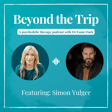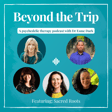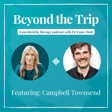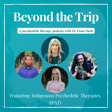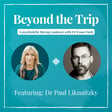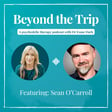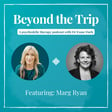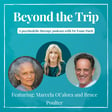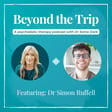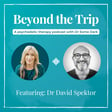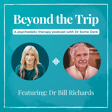
Dr Rosalind Watts: Accept, Connect, Embody, Restore
In this episode, I’m joined by Dr Rosalind Watts — a clinical psychologist whose work as the Clinical Lead for Imperial College London’s psilocybin trial has made her one of the most influential voices in psychedelic research.
Named among the 50 Most Influential People in Psychedelics and the Top 16 Women Shaping the Future of Psychedelics, Dr Watts stands out for her focus on integration, harm-reduction, and inclusion in the psychedelic space. Drawing inspiration from nature, she has developed tools and structures to foster connectedness after psychedelic experiences.
One of her key insights from her time in the field has been that safe and effective use of psychedelics depends on robust integration support. This led her to co-found ACER — Accept, Connect, Embody, Restore — a global online integration community where participants embark on a 13-month journey to connect more deeply with themselves, others, and nature.
We explore:
· Her early work in psychedelic research
· Sustainable practice in psychedelic therapy
· Challenges facing the psychedelic field
· The tension between medical models of distress and psychedelic work
· Nature as a therapeutic ally
· The ACER integration community
Find Dr Rosalind Watts at: https://www.drrosalindwatts.com/
ACER Integration: https://acerintegration.com/
Recommended Readings
keep in touch with me at Insta: dresmedark
Check out our new YouTube Channel https://www.youtube.com/@BeyondtheTrippodcast
Linkedin: www.linkedin.com/in/dr-esme-dark-627156a0/
Website: https://www.esmedarkpsychology.com.au/
· Find Monash Clinical Psychedelic Lab at www.monash.edu/psychedelics
The Hologram by Cassie Thornton: https://www.goodreads.com/book/show/53425744-the-hologram
If Women Rose Rooted by Sharon Blackie: https://sharonblackie.net/if-women-rose-rooted/
Disclaimer: This podcast if for general information only and does not constitute an endorsement or recommendation for psychedelic- assisted psychotherapy.
